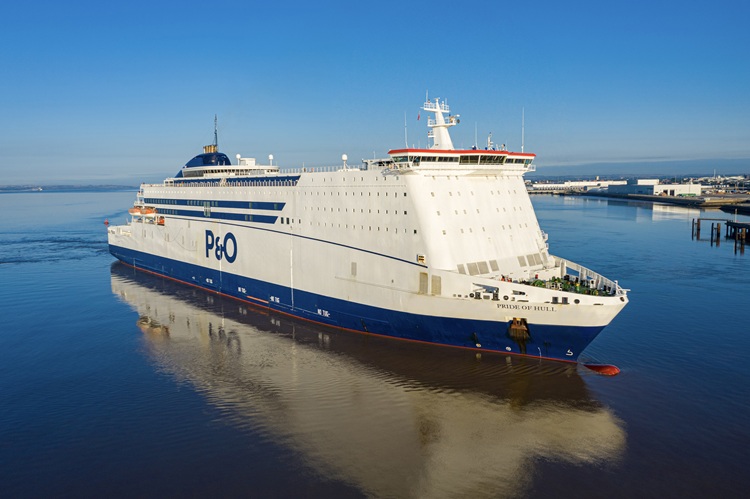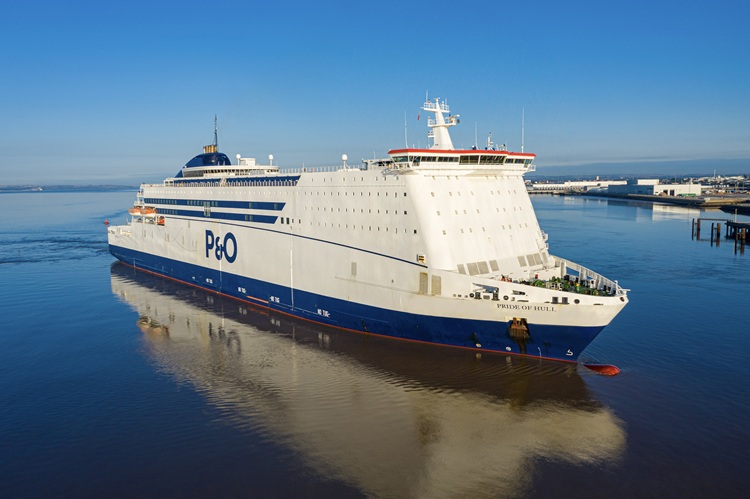
P&O Ferries has made history on the North Sea, with its vessel, the Pride of Hull, becoming the first ferry on the busy Hull–Rotterdam route to permanently run on lower-carbon biofuel. Following a successful trial, the vessel is now running entirely on Biofuel B30 – a milestone in P&O Ferries’ journey to cut emissions across its fleet.
The announcement coincides with the UN’s Global Goals Week, an annual rallying point for action and accountability around the Sustainable Development Goals (SDGs). By rolling out biofuels on one of Europe’s largest ferries, P&O Ferries advances UN Sustainable Development Goals 13 (Climate Action) and 14 (Life Below Water) – demonstrating how ambitious goals can be translated into practical progress.
At 215 metres long, Pride of Hull carries up to 1,360 passengers and 400 freight vehicles on the busy Hull–Rotterdam corridor, a critical trade and travel link between the UK and Europe. Now, with the transition to Biofuel B30, the ferry is cutting lifecycle greenhouse gas emissions by approximately 20% compared with traditional marine fuel, while maintaining the reliability of services.
The transition directly supports compliance with the EU’s FuelEU Maritime regulation, which came into force in January 2025 and requires ships over 5,000 gross tonnage to progressively reduce their greenhouse gas intensity.
Stewart Hayes, Fleet Director for P&O Ferries, said:
“Global Goals Week is about turning ambition into action. This transition shows that meaningful emissions reductions are possible today – even on one of the largest ferries in Europe. By adopting biofuels, we’re helping our freight and passenger customers meet their climate goals while making journeys and supply chains cleaner. It’s another step towards our ambition for a more sustainable future for ferry travel and trade, part of DP World’s wider commitment to cut emissions by 42% by 2030. Our shared goal exceeds European standards to limit global temperature rise.”
Following consultation with engine manufacturer Wärtsilä and leading fuel suppliers, biofuel b30 was selected as the most practical transitional fuel – reducing emissions without the need for costly vessel conversions. Alternative fuels such as methanol and ammonia would require significant engine modifications or replacements.
The move builds on P&O Ferries’ carbon savings of over 135,000 tonnes in recent years through hybrid ship deployment and fleet optimisation. Now monitoring the Pride of Hull’s performance on biofuels, P&O Ferries continues to lead in providing practical, scalable solutions for decarbonising maritime trade.


